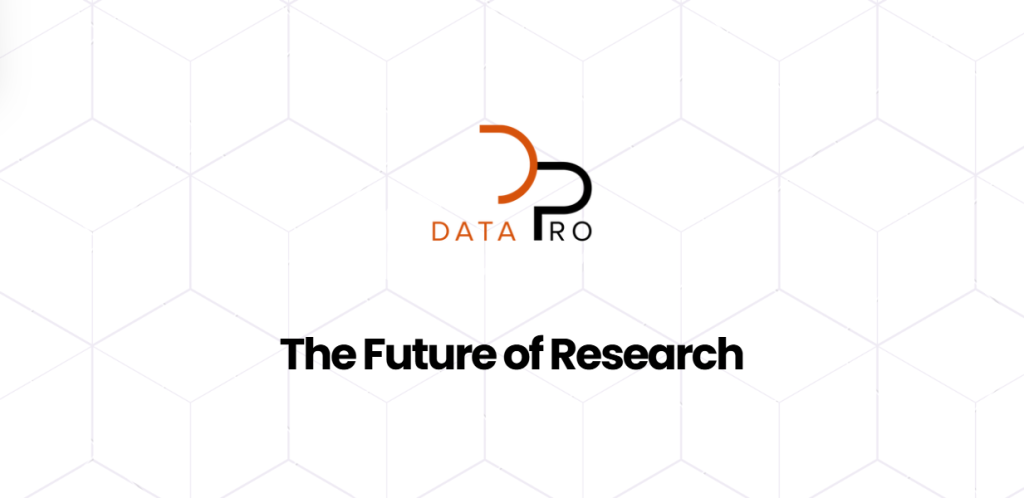
The Future of Research: How AI Autonomous Agents Are Redefining Market Intelligence
The world of artificial intelligence is evolving at an unprecedented pace, and one of the most groundbreaking advancements is the rise of AI agents. These autonomous tools are poised to reshape industries, particularly market research, by enabling new levels of efficiency, decision-making, and insight generation. AI agents are not simply assisting with tasks; they are taking on complex responsibilities independently, significantly transforming the way we approach research and market intelligence.
The Age of the AI Agent
Artificial intelligence has long been a part of our daily lives, primarily through AI assistants tools that help with specific tasks by following user commands. However, a new category of AI, known as AI agents, is emerging and challenging the very nature of human-AI interaction. Unlike assistants that require continual input, AI agents are designed to autonomously make decisions, execute tasks, and learn from their environment, minimizing the need for human intervention.
AI agents are poised to usher in what’s been termed the ‘Agentic Era,’ where AI takes on a more active role in driving decisions. According to MarTech, 2025 will be the year of the AI agent, a prediction that is becoming more relevant with each passing month. As AI’s capabilities grow, market intelligence is set to undergo a major transformation, enabling businesses to tap into real-time insights, automate complex processes, and enhance strategic decision-making.
AI Assistants vs. AI Agents
To understand the full potential of AI agents, it’s essential to distinguish between them and the more commonly known AI assistants. While both are integral to AI-powered workflows, there are notable differences:
AI Assistants: These are task-specific tools designed to assist users with particular functions. AI assistants are reactive they follow commands and interact with users based on pre-programmed instructions or user input. For example, an AI assistant might help transcribe interviews, translate languages, or summarize reports. These tools serve as supportive aids to enhance productivity and streamline repetitive tasks.
AI Agents: On the other hand, AI agents go beyond simple assistance. They are designed to take autonomous actions, make independent decisions, and perform tasks without requiring continuous oversight. Think of an AI assistant as a helpful companion that responds to prompts, while an AI agent is a proactive problem solver capable of managing entire workflows. For instance, an AI agent could autonomously schedule research interviews, moderate discussions, and generate reports, all while learning and adapting based on new data.
This shift from passive assistance to active problem-solving represents a fundamental change in how AI can be leveraged in market research and beyond. The ability for AI agents to act without constant supervision opens the door to a wide range of applications in market intelligence.
The Rise of AI Agents in Market Intelligence
AI agents are not just a theoretical concept, they are already being integrated into various industries. Leading tech companies have begun rolling out AI agents that perform tasks traditionally handled by humans, creating efficiency and scalability. Here are some examples of how AI agents are transforming the landscape:
Salesforce’s Agentforce
Salesforce’s Agentforce is a prime example of an AI agent framework. This system simulates human thought processes, enabling AI agents to autonomously handle complex tasks across customer support, marketing, and sales. For example, Agentforce’s campaign optimizer can manage entire marketing campaigns, while its service agent replaces traditional chatbots, providing more effective customer support. By reducing human intervention by 50%, Salesforce’s AI agents are already managing 83% of its customer support requests.
HubSpot’s Breeze AI
Similarly, HubSpot has introduced Breeze AI, a tool that automates tasks across marketing, sales, and customer service. Breeze AI can handle content marketing by generating blogs, landing pages, and case studies, as well as sales prospecting by identifying and contacting leads. This level of automation allows businesses to scale their efforts without increasing human resource costs.
Google’s Gemini 2.0
Google’s Gemini 2.0 represents the next leap forward in AI agents. This system not only supports advanced reasoning but also facilitates real-world decision-making. A key feature of Gemini 2.0’s prototype, Mariner, allows users to make requests and have the AI agent take action on their behalf. For instance, Mariner can add items to a shopping cart, but it requires user confirmation before completing the transaction, providing a balance of autonomy and control.
These examples showcase the broad potential of AI agents across industries, from automating customer support to optimizing marketing strategies. However, their true impact may be most keenly felt in the field of market intelligence.
The Potential of AI Agents in Market Intelligence
In the realm of market research, AI agents are set to redefine the process of collecting and analyzing data. Traditionally, market intelligence involves a combination of manual research, human analysis, and collaboration across teams. With the advent of AI agents, this process is becoming more autonomous, efficient, and insightful.
Imagine a scenario where an AI agent could:
- Automate Interview Scheduling: AI agents could autonomously schedule interviews with research participants, adjusting for time zone differences and sending reminders to ensure no sessions are missed.
- Moderate Research Activities: AI agents could participate in research sessions, asking follow-up questions based on participant responses to gain deeper insights into motivations, behaviors, and emotions.
- Generate Visual Reports: Based on research summaries, AI agents could automatically create images, charts, and even videos that enhance the final report, offering a more comprehensive and engaging presentation of findings.
- Connect Insights Across Studies: AI agents could search through similar research to identify broader trends, linking findings from different studies to create a more cohesive and strategic understanding of the market landscape.
This level of automation can drastically reduce the time and effort required to conduct market research. With AI agents handling repetitive tasks, researchers can focus on more strategic, high-value work, such as analyzing data, formulating hypotheses, and making recommendations.
What Does the Future Hold?
As AI agents become more capable, the possibilities for market intelligence are limitless. They promise to level the playing field for businesses of all sizes, enabling teams with minimal research experience to execute sophisticated studies and gain deeper insights into consumer behavior.
The integration of AI agents into market intelligence workflows will open new doors for:
- Real-Time Decision Making: By leveraging AI agents, companies can access live data and make decisions faster than ever before, gaining a competitive edge in the market.
- Scalability: Automation allows businesses to scale their market research efforts without the need for significant increases in human resources, making it easier to conduct larger, more comprehensive studies.
- Improved Accuracy: AI agents can analyze vast amounts of data more accurately and consistently than humans, minimizing the risk of human error and bias.
However, to fully realize the potential of AI agents, businesses must adopt them thoughtfully and strategically. The technology is evolving rapidly, and staying informed about the latest advancements is key to staying competitive in an increasingly AI-driven world.
Steps to Embrace AI in Market Intelligence
If you’re ready to harness the power of AI agents in your research, here are a few practical steps to get started:
- Start Small: Begin by automating simpler tasks with AI tools like ChatGPT, which can help with tasks such as writing discussion guides, generating questions, or summarizing reports. This will give you a feel for AI’s capabilities and ease you into the more complex use cases.
- Explore Purpose-Built AI Tools: There are several AI-powered platforms tailored specifically for market research. Tools like Discuss’ GenAI Assistant can help streamline data collection and analysis, providing more efficient and cost-effective insights.
- Integrate Thoughtfully: As AI agents become more mainstream, it’s important to think strategically about how they can be integrated into your research workflows. Consider how automation can improve efficiency while ensuring that human intelligence and creativity remain at the heart of the decision-making process.
- Stay Informed: AI technology is advancing rapidly, and staying updated on new developments will help you take full advantage of the latest innovations in market intelligence.
A Collaborative Future
The future of market intelligence lies in collaboration between humans and AI. AI agents are not designed to replace human researchers but to enhance their abilities, enabling them to focus on higher-level strategic work. As we move further into the ‘Agentic Era,’ the key to success will be to embrace AI as a powerful tool that can help us work smarter, not harder.
By combining the best of human intelligence with the capabilities of AI agents, we can unlock new insights, accelerate decision-making, and drive smarter business strategies. The future of research is here and it’s powered by AI.
Innovate With Custom AI Solution
- 12 Courtyard Pl,
Lexington, MA 02420 - (617)319-0174
- corp@dataprocorp.tech
